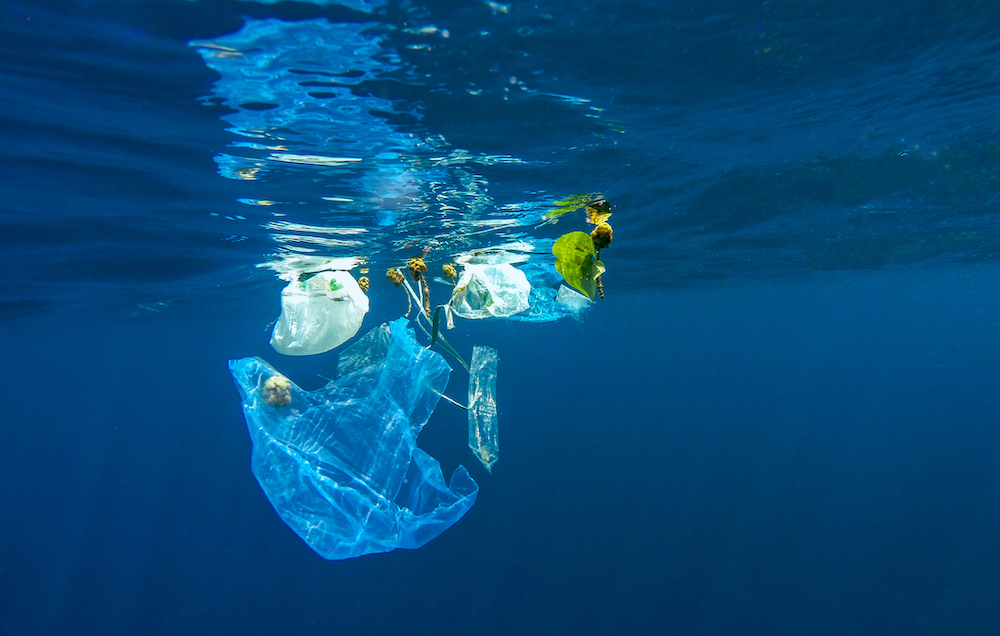- Investment management firm Circulate Capital is seeding companies that prevent ocean plastic in South and Southeast Asia, raising $106 million.
- The fund recently invested $6 million in plastic recycling companies in India and Indonesia aims to show the projects can be profitable.
- The COVID-19 pandemic is boosting the flow of plastic reaching the world’s oceans due to increasing use of personal protective equipment and a rollback of regulations.
Rob Kaplan founded Circulate Capital after realizing that the best way to cut plastic pollution in the world’s oceans was to focus on Asia’s waste and recycling industry.
The two-year-old, Singapore-based investment management firm announced the close of its first $106 million fund in December and is now backing companies in South and Southeast Asia. The fund aims to use its capital to spur further investment, bolstering growth of the circular economy and cutting the flow of plastic waste into oceans. Circular Capital’s backers include multinationals such as Pepsi, Procter & Gamble, Unilever, Dow and Chevron, which will use recycled plastic.
“Most of the plastic that gets into the ocean comes from a few countries in South and Southeast Asia,” Kaplan, Circulate Capital’s CEO, told Karma. “By concentrating on a few we can cut the flow in half.”
Each year about 8 million metric tons of plastics enter the ocean adding to the estimated 150 million metric tons already there. More than half of this plastic comes from five fast-growing Asian countries — China, Indonesia, the Philippines, Thailand, and Vietnam, according to an Ocean Conservancy report. Sri Lanka and India are also major sources of ocean-plastic-waste leakage, the report said.
Circulate is primarily eyeing India, Indonesia and the surrounding region, Kaplan said. The first two investments — $6 million in recycling companies in India and Indonesia — were announced in April and two more should be approved this month, he said. For the year, he expects as much as 30% will be invested.
Asia’s fast growth has outpaced the development of the infrastructure needed to collect and recycle plastic waste. About 75% of the plastic that enters the ocean comes from uncollected waste, while the remainder comes from leaks in the waste-management system, according to the Ocean Conservancy.
“These are countries with long coastlines and are often archipelagos such as Indonesia and the Philippines,” Kaplan said. “They have seen massive, export-led growth in the last 10-to-15 years. This is unlike Europe and America where it took 100 years to see this kind of growth. The pace of infrastructure development didn’t keep up.”
Circulate Capital’s first two investments were India’s Lucro, which recycles hard-to-manage flexible plastic, and Indonesia’s Tridi Oasis, which turns PET bottles into flakes that are then used in the production of packaging and textiles. The company is looking for other startups and small and mid-sized enterprises in the region offering solutions to the plastic waste problem.
“The company we invested in in Indonesia, Tridi Oasis, was founded by two female entrepreneurs, who built their recycling company from scratch,” Kaplan said. “They buy plastic from the informal sector and turn it into flakes, which can be turned into high-quality products.”
The impact-focused investment fund wants to leverage funding from other companies and investors, because the $106 million is a small part of the billions needed to keep plastics from oceans.
“We aim to be catalytic capital, trying to demonstrate to industry and institutional investors the market-based solutions to this problem,” Kaplan said.
“Those who are financing the future of infrastructure in Asia need to pay as much attention to waste reduction and recycling as they do to bridges, roads and ports. We are looking at turning that $100 million into billions,” he said.
COVID-19 threatens to increase the flow of plastics into the marine environment, according to Greenpeace and other environmental organizations. Surging demand for personal protective equipment adding to the volume of plastic waste. The plastics industry is using the pandemic to rollback regulations, curbing the use of single-use plastics, environmentalists said.
“If COVID has taught us anything, it’s that we should invest in resiliency, essential services, local industries and communities,” Kaplan said. “We have to change our pre-COVID assumptions and think about what the picture will be post-COVID.”






















